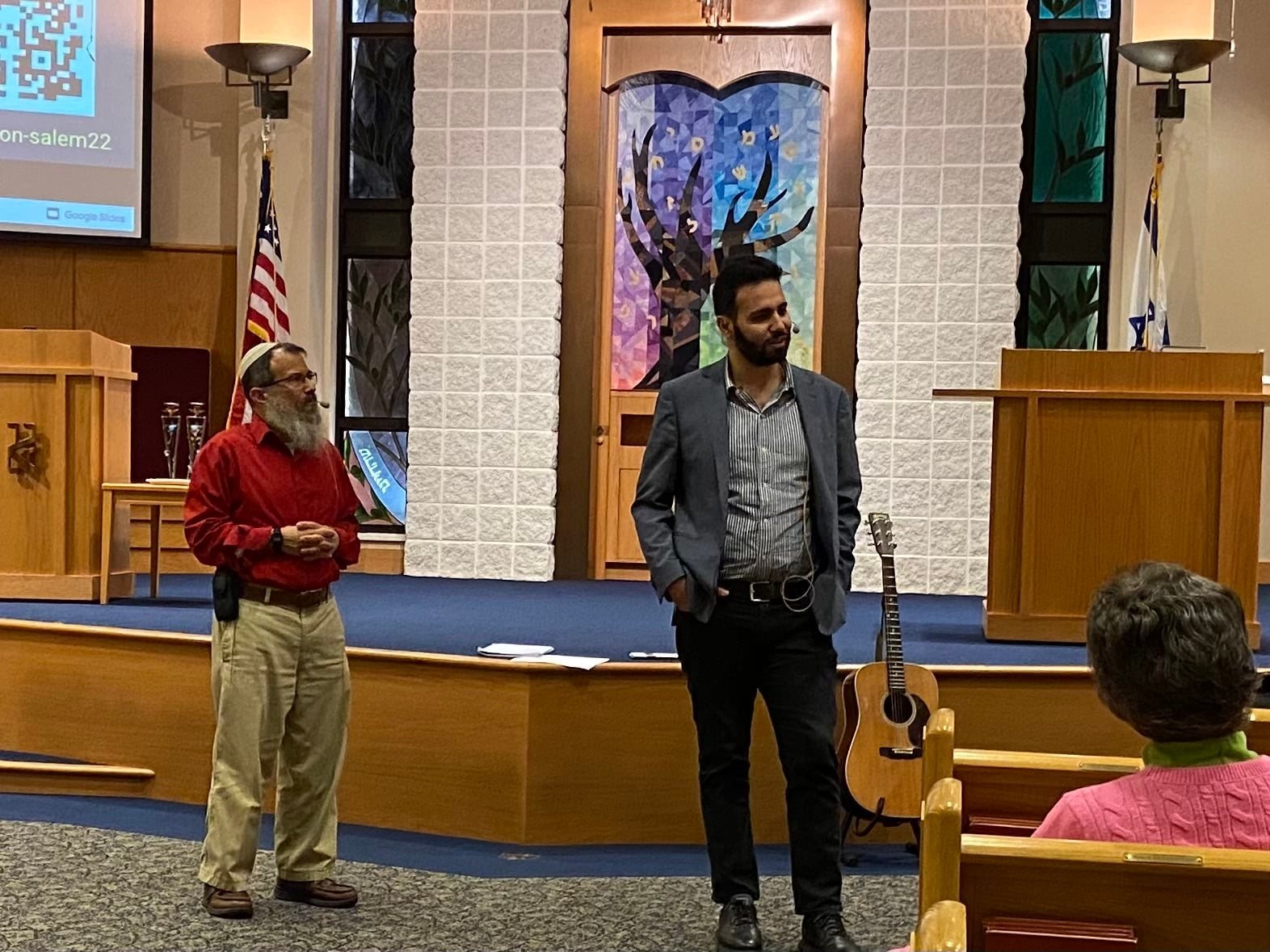An Unlikely Pair for Peace
Rabbi Scheslinger and Khalil Sayegh on their Spring 2022 international speaking tour for Friends of Roots. Source: Friends of Roots Facebook
At the end of March, Hillel and Heels for Israel invited Friends of Roots (the international arm of Roots) to come speak on campus for a “nuanced and meaningful conversation” about the violence between Israelis and Palestinians. Rabbi Hanan Schlesinger, a self-proclaimed Zionist and settler, spoke alongside Khalil Sayegh, a Palestinian advocate about their experiences with violence and their personal journey to start Roots.
In the West Bank, there is only one physical space that Israelis and Palestinians share. Otherwise completely separated from one another, both groups share the Dignity Center, where they can engage in various activities and discussions amongst one another ranging from photography classes to cross-cultural celebrations and trauma therapy. Through history-making in their physical space alone, Roots takes an even more distinct approach to what would already be a complicated attempt at reconciliation. Roots looks to go beyond the general humanization of the “other,” and embraces the harsher and more radical sides to the Israel-Palestine conflict, even if it makes their general mission more complicated. Rabbi Schlesinger explained that in order to achieve true peace you cannot “make people check their identities at the door.” Instead, Roots looks to incorporate all different perspectives of the conflict into their programs.
Rabbi Schlesinger and Sayegh not only touched on their programming, but also shared how they came to realize such an organization was necessary. Both activists come from vastly different backgrounds: Rabbi Schlesinger moved to Israel at the age of eighteen from New York, and considers himself a Zionist. Sayegh grew up in the Gaza Strip, where he was repeatedly exposed to violence before illegally escaping to other Palestinian neighborhoods in the West Bank.
In the U.S., this type of conversation can feel like you’re walking on broken glass — Zionism carries some taboo, but criticisms of Israel are often accompanied by antisemitic attitudes. Instead, Rabbi Schlesinger and Sayegh embrace the uncomfortable truths about living in the West Bank, and offer their listeners unmitigated honesty about their past prejudices and the continual fight to overcome them. Both men point out that until eight years ago, they had never spoken to an Israeli or a Palestinian respectively. It was not until separate instances of violence between the two groups that both activists were drawn to speak with the neighbors they had once treated with disdain. Notably, the speakers did not delve into Israeli politics — which has been under a bright spotlight for decades, and even more so after Naftali Bennett replaced Benjamin Netanyahu following a resurgence in violence between Israel and Palestine. However, Rabbi Schlesinger admitted that while changing Israeli politics to recognize the rights of Palestinians was essential to achieving peace —the work of Roots and a bottom-up approach to peace were necessary before political change could be addressed successfully.
Abby Adams, President of Heels for Israel, explained that hosting Roots was intended to spark a conversation about Israel centered on real people's experiences and various perspectives. She explained, “I could not think of a better organization to bring to our campus than Roots that truly emulates our broader mission. This event was for people with different views on Israel/Palestine, and its goal was not to change anyone’s mind about their political opinions, but to remind us all about the power of learning from one another and realizing that there can be multiple truths.” This aligns closely with the organization's message after Adams re-started the club and changed its overall mission to be a space for “meaningful dialogue about Israel [and] a space to celebrate Israeli culture.”
Adams' point that there can be multiple truths to the history of Israel is central to the work of Roots. Rabbi Schlesinger described how he —once steadfast in his belief that the re-settlement of Israel by the Jewish peoples was a product of history — came to realize that his belief system could not hold up in the face of hearing Palestinians' lived experiences. He explained, “It began to dawn on us that this land, this is the land of both of us…there is such a thing as the Jewish people belonging to Israel and the Palestinian people belonging to Palestine. And it turns out that Israel and Palestine have the same borders…we are both connected to the same land.”

